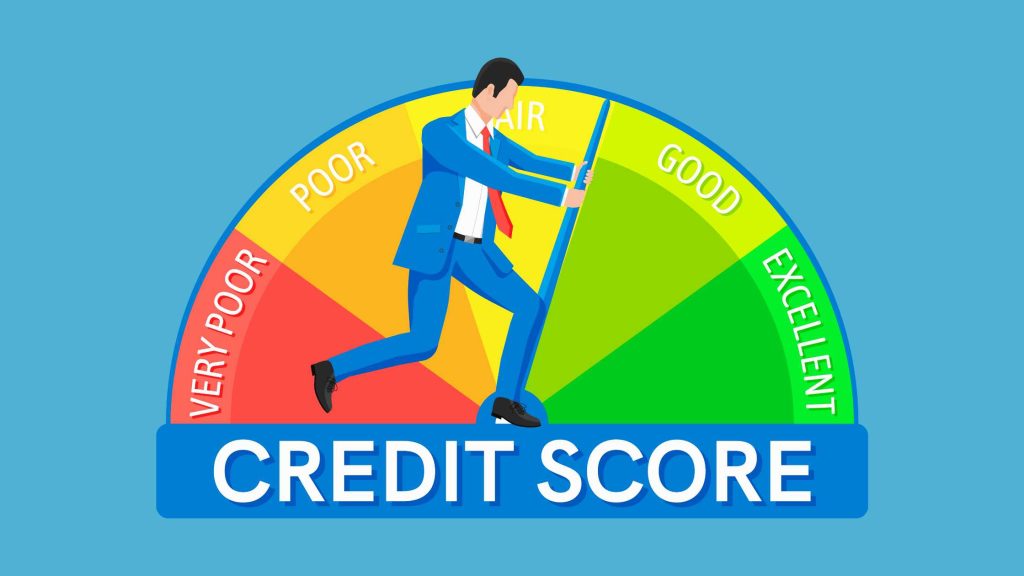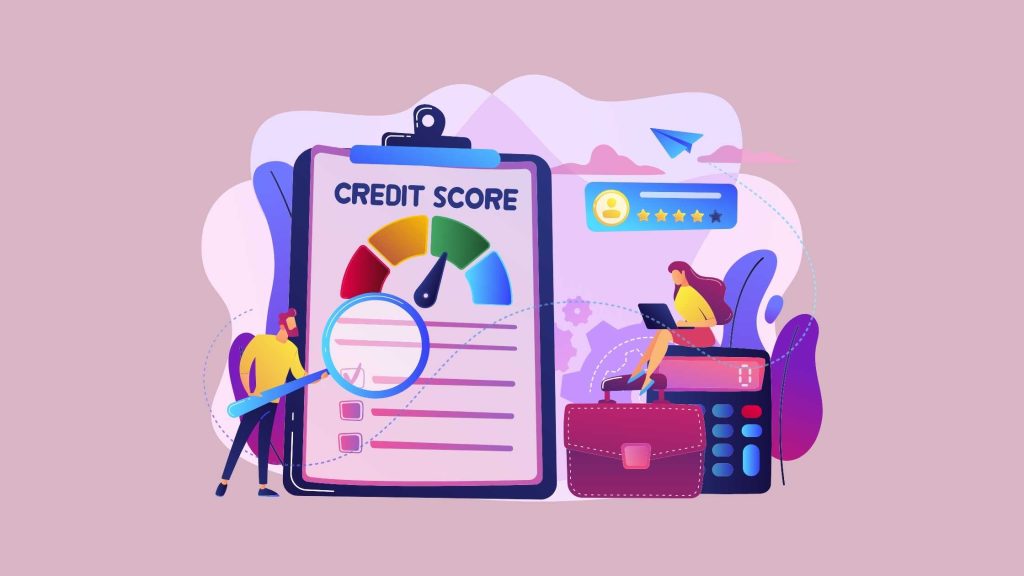How to Build a High Credit Score in India : Comprehensive Guide 2025
How to Build a High Credit Score : In today’s financially dynamic world, having a high credit score in India is not a luxury—it’s a necessity. Whether you’re planning to take out a personal loan, apply for a credit card, finance your dream home, or even buy a vehicle, your credit score can make or break the deal. In India, your creditworthiness is largely represented by your CIBIL score, which ranges from 300 to 900.
Table of Contents
A high CIBIL score (750 and above) not only improves your chances of loan approval but also helps you secure better interest rates and higher credit limits. This comprehensive guide for 2025 provides practical, strategic, and up-to-date insights on how to build, maintain, and maximize your credit score in India.
What is a Credit Score and Why It Matters in 2025?

A credit score is a numerical representation of your creditworthiness, determined by your past borrowing behavior, repayment history, credit utilization, and other financial factors. In India, this score is most commonly provided by TransUnion CIBIL, but other credit bureaus like Experian, Equifax, and CRIF High Mark also play crucial roles.
High-Reaching Keywords in 2025
- How to increase CIBIL score fast
- Build a strong credit history in India
- Tips to boost your credit score in 2025
- Improve your credit score for personal loans
- Get a home loan with a high CIBIL score
- What affects your credit score in India?
- Best credit cards for building credit score in India
- How to check CIBIL score for free in 2025
- Fix bad credit in India
- Credit score guide for salaried professionals
Ideal Credit Score Range in India
| Score Range | Meaning | Implication |
|---|---|---|
| 750 – 900 | Excellent | Easy approvals, best interest rates |
| 700 – 749 | Good | Approval possible, but not the best deals |
| 650 – 699 | Fair | Moderate difficulty in getting loans |
| 550 – 649 | Poor | High rejection chances |
| Below 550 | Very Poor | Major financial red flags |
Aiming for a 750+ credit score should be your financial goal if you want to unlock premium credit facilities and low-interest loans in India.
Also read: Do Credit Card Loans Affect Your Credit Score?
How Credit Score is Calculated in India
Understanding the credit score formula helps you take control of the contributing factors:
- Payment History (35%) – Timely EMI and credit card payments
- Credit Utilization Ratio (30%) – How much of your available credit you use
- Length of Credit History (15%) – Age of your oldest credit account
- New Credit Inquiries (10%) – Number of recent loan or credit card applications
- Credit Mix (10%) – Balance between secured and unsecured credit
Each of these parameters plays a significant role in determining your score.
Top Benefits of a High Credit Score in India (2025)
- ✅ Easy Loan Approvals
Banks prefer borrowers with strong credit histories. - ✅ Low-Interest Rates
A high score can slash your interest rate by 1-3%, saving lakhs on long-term loans. - ✅ Higher Credit Card Limits
Financial institutions reward you with more spending power. - ✅ Faster Processing
Minimal paperwork and faster approvals are typical for individuals with good scores. - ✅ Stronger Negotiating Power
You can negotiate for better terms on loans and financial products.
Step-by-Step Guide to Build a High Credit Score in India
1. Check Your Credit Report Regularly
Start by accessing your credit report for free via:
- CIBIL
- Experian India
- CRIF High Mark
- Equifax India
Tip: Check for errors like duplicate accounts or wrongly reported defaults and raise disputes promptly.
2. Pay Your Bills on Time—Every Time
Your payment history is the most significant part of your credit score. Always pay:
- Credit card bills
- EMIs
- BNPL (Buy Now Pay Later) accounts
- Utility bill EMIs or subscriptions
Set Auto-Pay to avoid missing due dates and use bill reminder apps like CRED or Paytm.
3. Maintain a Low Credit Utilization Ratio
Ideally, use less than 30% of your total credit limit. High utilization signals credit hunger and lowers your score.
Example:
If your total credit limit is ₹1,00,000, try not to spend more than ₹30,000 monthly.
Pro Tip:
Ask for a credit limit increase after 6 months of good usage to reduce your utilization ratio without changing spending habits.
4. Don’t Close Old Credit Accounts
Your credit history length matters. Closing an old credit card can reduce your average account age and negatively impact your score.
Instead:
- Keep your oldest card active with occasional small purchases.
- Pay dues immediately to avoid interest.
5. Diversify Your Credit Mix
A healthy mix of:
- Secured loans (home loan, car loan)
- Unsecured loans (personal loan, credit card)
demonstrates responsible credit usage and boosts your score.
Avoid: Taking multiple unsecured loans simultaneously, as it increases risk perception.
6. Limit Hard Inquiries
Too many loan or credit card applications in a short period can hurt your credit score. Each application triggers a “hard inquiry”.
Tip:
Use “pre-approved” loan tools or soft inquiry tools before formally applying.
7. Use Credit Builder Tools

If you’re new to credit or rebuilding from a poor score:
- Take a secured credit card against a fixed deposit
- Use credit-builder loans from NBFCs like Fibe or KreditBee
- Explore BNPL services with good repayment reporting
These options help build history with minimal risk.
8. Become an Authorized User (with caution)
If someone with a good credit history adds you as an authorized user to their credit card, it can improve your score. However, if they default, your score could be affected too.
9. Use Digital Tools for Credit Score Monitoring
Apps like:
- CRED
- OneScore
- Paytm Credit Report
- Wishfin
help track your score, set repayment reminders, and give tips to improve your rating.
10. Dispute and Fix Errors Promptly
If you notice incorrect entries like:
- Repayments not recorded
- Duplicate accounts
- Closed loans still marked open
Immediately file a dispute with the credit bureau and bank. Corrections typically reflect within 30-45 days.
Special Tips for Salaried Employees in 2025
- Opt for salary-based personal loans with lower interest
- Use company perks like corporate credit cards for credit history
- Maintain financial discipline even during job changes
Common Mistakes That Damage Your Credit Score
🚫 Late EMI or bill payments
🚫 Applying for multiple loans simultaneously
🚫 Maxing out your credit card
🚫 Ignoring errors in credit reports
🚫 Defaulting on BNPL or micro-loans
🚫 Taking loans under co-signed names with defaulters
How Long Does It Take to Build a High Credit Score?
- From no score to 750+: 9–12 months of disciplined credit behavior
- From bad score (<600) to 750+: 12–24 months of consistent efforts
Credit history isn’t built overnight, but with strategy and patience, anyone can achieve a top-tier score.
Impact of Credit Score on Loan Types in 2025
| Loan Type | High Score Benefits | Low Score Impact |
|---|---|---|
| Personal Loan | Low interest, fast approval | Rejection or higher rates |
| Home Loan | Better terms, higher amount | Larger down payment required |
| Credit Cards | Premium cards, rewards | Low limits or rejection |
| Vehicle Loan | Fast approval | Reduced tenure options |
| BNPL & Fintech | Instant credit line | Limited eligibility |
How to Rebuild Credit After a Default
- Settle pending dues
- Negotiate a payment plan
- Get a secured credit card
- Avoid further defaults
- Keep utilization low
- Monitor report monthly
Over time, your score will begin to recover.
Top Credit Cards in India to Build Credit in 2025
| Credit Card | Key Benefit | Ideal For |
|---|---|---|
| SBI SimplyClick | Reward points on online spend | Beginners |
| HDFC MoneyBack+ | Cashback & EMI benefits | Salaried employees |
| ICICI Amazon Pay Card | No annual fee, great offers | Frequent online shoppers |
| Axis Ace Credit Card | 2%–5% cashback | Utility bill payers |
| OneCard | Zero joining fee, modern UX | New-to-credit users |
Future Trends in Indian Credit Scoring (2025 and Beyond)
- AI-Based Credit Profiling: Alternative data like mobile bills, UPI activity may start impacting scores.
- Fintech Integration: Credit scores will be tied to UPI apps and digital wallets.
- Dynamic Scoring Models: Real-time score updates based on financial activity.
How to Build a High Credit Score – Conclusion:

In the Indian financial landscape, your credit score is your passport to better financial health. Whether you’re a young professional or a seasoned borrower, understanding how credit scores work—and how to improve them—gives you long-term power and freedom.
Buy Now : News & Magazine Website AI Automated
By following the tips outlined in this 2025 guide, you can:
- Avoid costly loan denials
- Negotiate better deals
- Build a solid financial future
Start small, stay consistent, and your credit profile will grow stronger every month.
Disclaimer : This article is for informational purposes only. Always consult a certified financial advisor or credit expert before making significant credit decisions.
Keywords : How to Build a High Credit Score – How to Build a High Credit Score 2025 – How to Build a High Credit Score Guide , How to Build a High Credit Score in India , How to Build a High Credit Score



